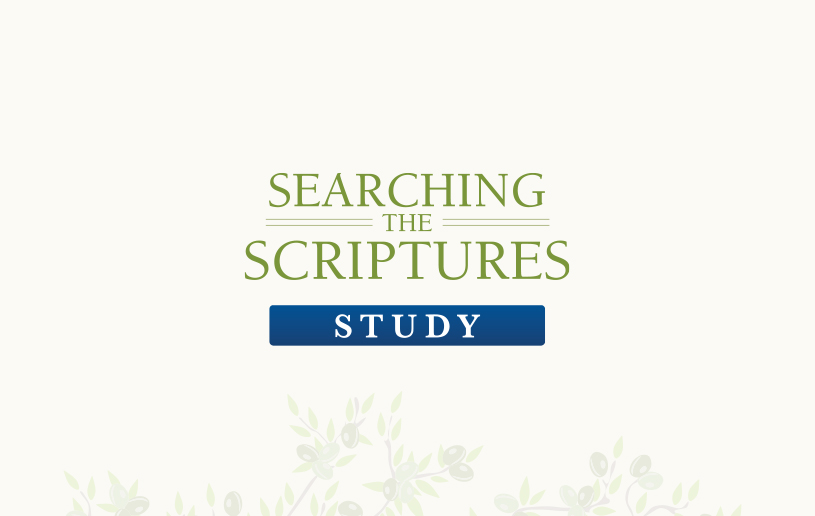
The following mini-study is presented to familiarize you with Pastor Chuck’s method of Bible study and provide an opportunity to study the passage yourself.
“Everyone is waiting for something. Everyone has a deep heartache, a serious prayer that still has not been answered. Habakkuk speaks with relevance to all of us.” —Pastor Charles R. Swindoll
In The Swindoll Study Bible, Pastor Chuck Swindoll expresses the central theme of Habakkuk: an extended conversation between God and one of His prophets. Habakkuk was distressed about God’s seeming inaction and lack of control in the world. He wanted to see God do something more, particularly in the area of bringing justice to evildoers.1
We could make the very same complaints today! In a world where so much evil and tragedy exists, we are surrounded by people “who love to argue and fight” and “justice has become perverted” (Habakkuk 1:3–4).
Why doesn’t God intervene?
In this Searching the Scriptures study, we’ll hear God’s answer.
Prepare Your Heart
Turn to the Lord in prayer.
Father, I call to You, my great God. Speak to me through this ancient book. Talk in terms that I can understand, and begin a work of changing my thinking so that I can change my way of living. In Jesus’ name, amen.
Turn to the Scriptures
Habakkuk 1 and 2 focus on Habakkuk’s conversation with God. Chapter 3 records his praise to God, after Habakkuk waited on God and listened to His words of reassurance.
Observation: Dialogue with God and Praise
Though not present in the earliest text, most Bibles include headings. These headings can help us in the observation phase of our Scripture study as we aim to understand the structure and flow of the book.
What headings do you find in the New Living Translation of Habakkuk? Write them in the space below.
1:2–4:
1:5–11:
1:12–2:1:
2:2–20:
3:1–19:
Summarize Habakkuk’s first complaint to the Lord in Habakkuk 1:1–4. What tearful questions tumbled out of his heart? Have you asked questions like these?
Summarize the Lord’s response to Habakkuk’s first complaint in 1:5–11. What shocking news did the Lord reveal to Habakkuk?
What didn’t make sense to Habakkuk about God’s plan, according to 1:12–17?
Habakkuk knew when to speak and when to listen to the Lord in quiet humility. How did the Lord answer Habakkuk’s core fear in Habakkuk 2:4?
The Lord revealed to Habakkuk a vision of the future in which the Babylonians would pay for their arrogance and brutality. Find the five “sorrows” against the Babylonians in 2:6–20 and summarize these judgments.
God would eventually judge the wicked and greedy idolators, but not before He used the Babylonians to deliver judgment on Judah.
The news of coming judgment was a hard pill for Habakkuk to swallow, but he could put his trust in God’s faithfulness, goodness, and sovereignty. Pick a couple of lines from the prophet’s prayer in chapter 3 that describe God’s awesome power and write them out.
Habakkuk concludes his book at peace, quietly waiting for the day “when disaster will strike the people who invade us” (Habakkuk 3:16). His soaring song of faith in 3:17–19 has touched the hearts of countless people of God who have walked through adversity in tears. In the interpretation section, let’s look closer at the meaning of these lines and the principles we can draw from them.
Interpretation: Habakkuk’s Song of Faith
The prophet responded to his world falling apart in a surprising way. Instead of wailing, he put his faith in God and rejoiced! Not in the adversity but “in the Lord” and “in the God of my salvation” (3:18). What lesson was he teaching his readers, and us, in 3:18?
According to Habakkuk 3:19, what truth was the foundation of Habakkuk’s joyful confidence?
What overarching principle does Habakkuk’s prayer teach all followers of God who must travel the difficult road of adversity and, at times, obscurity about God’s ways?
Correlation: Saved by Faith Alone in Christ Alone
What line did the Apostle Paul quote, according to Romans 1:16–17? What central truth about our salvation was Paul making?
How did Paul elaborate this truth in Galatians 3:10–11?
Application: From Habakkuk to Us
The righteous shall live by faith. Even in a world where so much evil and tragedy exists, God is still in control. Memorize and remember:
- God is able, and I am not
- God knows what’s best, and I do not
- God sees the end from the beginning, and I cannot
- God should have His way, and I should not
- God must be glorified through this trial, and I must not
Are you in a situation in which you’re calling out to the Lord, “How long, O Lord?”
How do the five truths above speak to you in your situation?
When we get a clear view of God, we change. His strength carries us not only through our adversity but above it, as we sing the ancient prophet’s song of faith.
The Sovereign LORD is my strength!
He makes me as surefooted as a deer,
able to tread upon the heights. (Habakkuk 3:19)
A Final Prayer
Father, in the pit of my struggles, I acknowledge that You are able. You know what’s best. You know the end from the beginning. Your plan is far better than mine, and You are the one who will be glorified in the end. I choose to live by faith in God, in His faithfulness, goodness, and sovereignty. I rest in Christ alone, who is my salvation and my strength. In His name I pray, amen
Go to insightforliving.ca/waiting to download the full-length Searching the Scripture Study and listen to Pastor Chuck’s message.
1 Charles R. Swindoll, The Swindoll Study Bible (Carol Stream, IL: Tyndale House, 2017), 1092.

